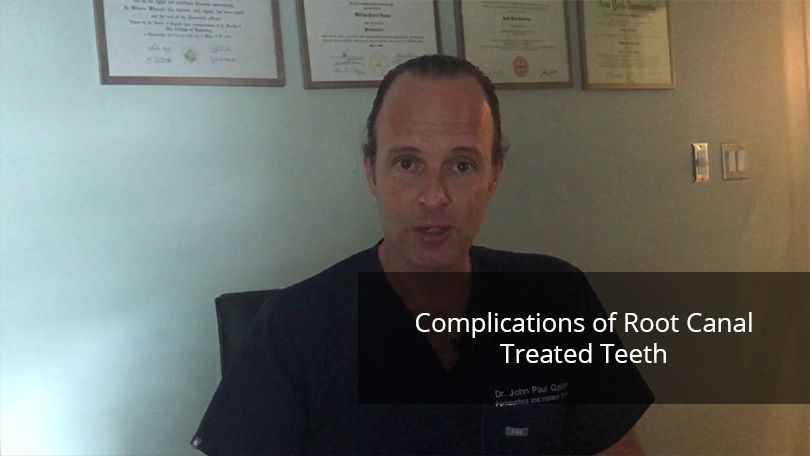Home / Dental Services / Root Canal Treatment
Root Canal Treatment Miami, FL
Do you suffer from toothaches? Are you tired of taking antibiotics every time you get a cavity? Then root canal treatment may be just what you need. Root canal treatment is not painful. However, you might feel a little bit of pressure as the doctor drills into your tooth and you might feel a slight amount of discomfort during the procedure.
Root Canal Benefits
01
Pain Relief and Infection Control
Root canal treatment alleviates toothache and eliminates the source of infection by removing infected pulp and cleaning the root canals. This helps relieve pain, prevent the spread of infection, and promote healing.
02
Tooth Preservation
Root canal treatment aims to save the natural tooth rather than extracting it. Preserving the tooth helps maintain proper oral function, preserves the natural bite, and eliminates the need for tooth replacement options.
03
Long-Term Solution
With proper care, a tooth treated with a root canal can last a lifetime. This makes root canal treatment a durable and cost-effective solution compared to tooth extraction followed by tooth replacement options like dental implants or bridges.
After the root canal is complete, you’ll probably notice that your tooth feels stronger and healthier. And you’ll likely see a dramatic improvement in your smile. If you have any kind of infection in your mouth, you should schedule an appointment with Dr. John Paul Gallardo, DDS, PA in Miami, Fl.
Root canals have a terrible reputation. People even use the expression “I’d rather have a root canal” to describe something painful or uncomfortable. But the truth is, a root canal is a standard dental procedure no more painful than having a cavity filled. It can help save a badly damaged or decayed tooth that may otherwise rot and need to be extracted. And, trust us, it hurts a lot more to continue with a damaged tooth than to undergo a root canal procedure!
Here’s what you can expect from a root canal treatment at Gallardo Periodontics and Implant Dentistry.

What is a Root Canal?
Inside each tooth, extending down to its roots, is a soft tissue known as the pulp, which contains blood vessels, nerves, and connective tissue. This pulp can become infected, damaged, and inflamed due to decay, cracks, chips, tooth injury, or multiple dental procedures on the tooth.
A root canal, sometimes called endodontic treatment or endodontic surgery, involves using specialized tools to drill a tiny opening inside the infected or decayed tooth to remove the damaged pulp and refill it with a biocompatible substance called gutta-percha.
Although old-school root canals, which were often performed without anesthesia, had a reputation of being incredibly painful, modern root canal procedures are no more painful than any standard dental treatment. In fact, at Gallardo Periodontics and Implant Dentistry, we offer various degrees of sedation dentistry, including IV and conscious sedation, to make every dental procedure as comfortable and painless as possible.
For more complex cases that may require endodontic surgery or further endodontic therapy, Dr. Gallardo and his team are always happy to refer you to the best endodontist in Miami or in your local area to go over your options.
Signs You May Need a Root Canal
A root canal may be required to avoid a dental infection spread, and teeth can get infected for many different reasons. You may notice one or more of the following signs if you have a tooth that needs a root canal:
Sensitivity to hot or cold temperatures
Many things can make your teeth sensitive, like smoking, tooth whiteners, poor brushing habits, and receding gums. But if you have prolonged sensitivity that causes pain when you touch, chew, or put pressure on your tooth, you may need a root canal.
Gum inflammation
If your gums are tender, swollen, or have a pimple-like bump in them, it’s important to schedule an appointment with your dentist to find out what’s causing the inflammation. You may need a root canal if your gums don’t improve or if the swelling is caused by a tooth infection that won’t respond to other treatments.
Dental discoloration
If you have a tooth that has significantly changed color, particularly one that has become darker than the surrounding teeth, it may be a sign of nerve damage. In some cases, you may need a root canal to remove the damaged tissue and prevent infection.
Severe tooth pain
Teeth shouldn’t hurt. Any pain that you feel in your mouth — including your teeth, gums, and tongue — should be mentioned to your dentist because it can signal an oral health issue. Sharp tooth pain that hits you suddenly, even when you are not eating or drinking anything, may be a sign of a tooth infection or a dead tooth that needs a root canal.
Is your pain persistent, or do you feel it deep in the bone of your tooth, reaching all the way to your jaw and your face? You may have an infection that calls for a root canal. Contact your dentist as soon as possible to determine the source of the problem.
Chipped or cracked tooth
Your teeth can get chipped or cracked from eating hard foods, suffering from a sports or accident injury, or even bruxism (excessive teeth grinding). A chip or crack in a tooth can expose the nerves beneath the surface and lead to an infection, which may require a root canal to keep it from spreading.
Common Reasons for Needing a Root Canal Treatment
Root canals are a common dental procedure used to treat an infected natural tooth. The infected pulp, which is the nerve tissue inside of a tooth root, can cause severe pain and requires treatment to prevent further tooth decay or loss. When the dentin (the layer underneath the enamel) is damaged due to deep decay or a cracked or chipped tooth, bacteria can invade the pulp and cause an infection. This infection can lead to swelling, pain, and abscesses if left untreated.
In most cases, root canal treatments are necessary when the infection has advanced too far for a simple filling or another dental repair to resolve it. In these cases, the dentist may begin with a root canal procedure in order to save the natural tooth instead of extracting it from the jawbone. During this procedure, any infected nerve tissue and bacteria will be removed from within the root itself and then replaced with either a biocompatible material or gutta-percha (a rubber-like substance).
Afterward, a crown may be placed over the treated area in order to protect it from future damage. At Gallardo Periodontics and Implant Dentistry, we specialize in minimally invasive treatments that are designed to preserve your natural teeth while keeping you as comfortable as possible during your time at our dental clinic in Miami.

Complications of Root Canal Treated Teeth
Diagnosis for Root Canal in Miami, FL
When it comes to diagnosing a potential need for a root canal treatment, dental pulp is the main indication. If the patient experiences an intense toothache or persistent dental pain, this could be a sign that the pulp inside the tooth has become infected and needs to be removed. Additionally, if the tooth discolors or darkens significantly compared to its surrounding teeth, this could also indicate that a root canal is necessary.
In order to properly diagnose whether or not a patient needs a root canal, a dentist will typically perform an X-ray of the affected area in order to assess any potential damage to the bone structure in addition to any infection present within the pulp itself. Depending on how extensive the infection is and what type of symptoms are being experienced by the patient, a dentist may recommend additional tests such as cone beam imaging or CEREC crown preparation prior to beginning treatment.
Once it has been determined that a root canal procedure is necessary, proper care is taken during each step of the process in order to ensure success. With advanced technology and experienced professionals at your side during your treatment at Gallardo Periodontics and Implant Dentistry in Miami, FL, you can expect excellent results with minimal discomfort throughout your entire dental restoration journey. Our goal is to provide our patients with lasting relief from their dental pain through effective treatments tailored specifically for them. By following proper post-treatment instructions provided by your dentist and taking good care of your teeth overall with regular brushing and flossing, you can enjoy an incredibly high success rate with your root canal procedure!
Treatment Options Available in Miami, FL
At Gallardo Periodontics and Implant Dentistry in Miami, FL, we specialize in providing tooth structure restoration using a variety of treatment options that are designed to preserve healthy teeth while also preventing further tooth loss. Our experienced dentists perform common procedures such as root canals and dental fillings that can help maintain the health of a patient’s natural teeth by removing infected or damaged tissue from the root canal system.
To treat gum tissue damage, we also offer various minimally invasive treatments that can restore oral health without sacrificing the original tooth structure. For instance, our periodontists specialize in soft tissue grafts as well as bone grafting, which allow us to replace lost gum tissues while simultaneously rebuilding any missing bone material. Additionally, we offer specialized laser therapy for receding gums, which is a non-invasive procedure that helps restore a healthy gum line without the need for traditional surgical methods.
By offering these advanced treatments along with regular preventive care, our goal is to provide our patients with lasting relief from painful dental issues as well as restoring their overall oral health. Our team of experienced dentists is committed to providing personalized care tailored specifically to each individual patient’s needs in order to ensure excellent results with minimal discomfort throughout their entire treatment journey.
What can the patient anticipate during therapy?
The treatment work by cleaning and shaping. Root canal treatment entails cleaning and shaping the inside of the tooth and then refilling and sealing the root canal to prevent bacteria from seeping in and creating a further infection.
A root canal can save a tooth by preventing further decay and restoring the tooth’s normal function. In most cases, a crown is placed to protect the inside of the tooth and return it to its natural appearance.

The Root Canal Procedure
Following the root canal procedure, the tooth may feel sore or tender for a few days while the ligaments and nerves heal. This discomfort is usually easy to control with over-the-counter painkillers, which your Miami endodontist will recommend. You should contact your dentist and endodontist right away if you experience severe tooth pain.
Tooth restoration (crown placement) typically takes place a few weeks following the endodontic treatment. This gives the tooth time to heal and to ensure the infection has cleared completely.
Avoid chewing or putting pressure on the treated tooth until your follow-up appointment when the crown will be placed by your dentist.
Following root canal treatment, teeth are very susceptible to fracture, so you should minimize this risk as much as you can. Once the tooth has been fully restored with a crown, you will be able to resume normal chewing. To ensure a successful root canal recovery, it is important to follow your dentist’s post-treatment care instructions and maintain a proper oral hygiene routine during the healing period.
After endodontic treatment, all you will need to do to care for the treated and restored tooth is continue normal brushing, flossing, and visiting your dentist at least twice a year for regular checkups.
Advantages and Disadvantages of Root Canal Treatment
A root canal may be required to avoid a dental infection spread, and teeth can get infected for many different reasons. You may notice one or more of the following signs if you have a tooth that needs a root canal:
Advantages
- Dental Visits: Root canal treatment is a great way to avoid having to make multiple visits to the dentist. A single visit can restore a damaged or diseased tooth, and prevent it from getting worse.
- Signs of Infection: By removing the infected pulp in a tooth, root canal treatment can effectively stop any signs of infection such as pain, swelling, and discoloration in the mouth.
- Entire Tooth: Root canal therapy allows for the entire tooth, including the root, to be saved and restored with minimal damage.
- Tooth with Root Canal: When a tooth has undergone root canal therapy it will be strong enough to withstand biting and chewing forces, just like any other healthy natural tooth.
- Dental Crowns: After undergoing root canal therapy, a dental crown may need to be placed in order to protect the weakened structure and strengthen it for day-to-day use.
Disadvantages
- Lengthy Procedure: The procedure can take some time depending on your individual case and could require several visits before it is completed.
- Complications: Although rare, there is always the risk of side effects of root canal treatment, occurring during or after the procedure, including persistent pain or infection that may require additional treatments or antibiotics.
- Cost: Root canal therapy can be quite expensive depending on your insurance plan or if you lack coverage altogether.
Our Work Speaks for Itself
What Our Patients Say
Committed to your results

Why Choose Dr. Gallardo for Your Root Canal Treatment
- Dr. Gallardo has 30 years of experience offering dental implants and specialized periodontics to patients throughout South Florida.
- Dr. Gallardo is a graduate from the University of Miami and received his Doctor of Dental Surgery degree from New York University College of Dentistry.
- Accepted into the V.A. Medical Center General Practice Residency Program of the U.S Department of Veterans Affairs where he was honored with the “Outstanding Resident of the Year” Award.
- He has lectured nationally and internationally to dentists and hygienists and has been sponsored by companies such as Procter and Gamble to speak on clinical topics related to gum disease and implant dentistry.
- Dr. Gallardo remains a leader in periodontics and implant dentistry through his active and past involvement with University of Florida, Florida Association of Periodontists and North American Society of Periodontists.
Frequently Asked Questions About Wilckodontics
How much is a root canal in Miami?
As with most dental procedures, the cost varies depending on the dentist, region, and type of tooth to be treated. Molars are more difficult to treat than other teeth and typically cost more for this reason. Your dentist will go over all the costs with you and discuss options for financing.
Does insurance cover root canal therapy?
Most dental insurances will cover at least some part of root canal treatments after the deductible has been met. Contact your insurance provider or call our office at 305-447-1447 if you have questions about your dental plan.
Can a root canal get infected?
While modern root canal treatments are typically very successful, there’s a small percentage of procedures that fail, causing the old root canal infection to return. Factors that may prevent a root canal from healing properly include not clearing out the infection in its entirety, an ill-fitting crown or filling that allows bacteria and saliva to enter the tooth, and poor oral hygiene.
How long does a root canal last?
Root canals with crowns can last decades or even a lifetime, and the treated tooth or teeth can go on to function normally for years. Practice good oral hygiene (i.e., brushing at least twice daily, flossing, visiting your dentist for regular checkups) to extend the life of your root canal for as long as possible.
What happens if I don’t get a root canal?
If you need a root canal, the pulp inside your tooth or teeth is probably infected. If left untreated, the infection can spread to your gums, jawbone, and surrounding teeth. In severe cases, the infection can lead to a dental abscess and seep into your bloodstream, causing serious and sometimes life-threatening health problems, like sepsis, stroke, and heart attacks.
What root canal treatment office is near me?
If you live near Miami, FL, Gallardo Periodontics and Implant Dentistry offers root canal treatment among its services, and is conveniently located at 2020 SW 27th Ave Miami, FL 33145.









